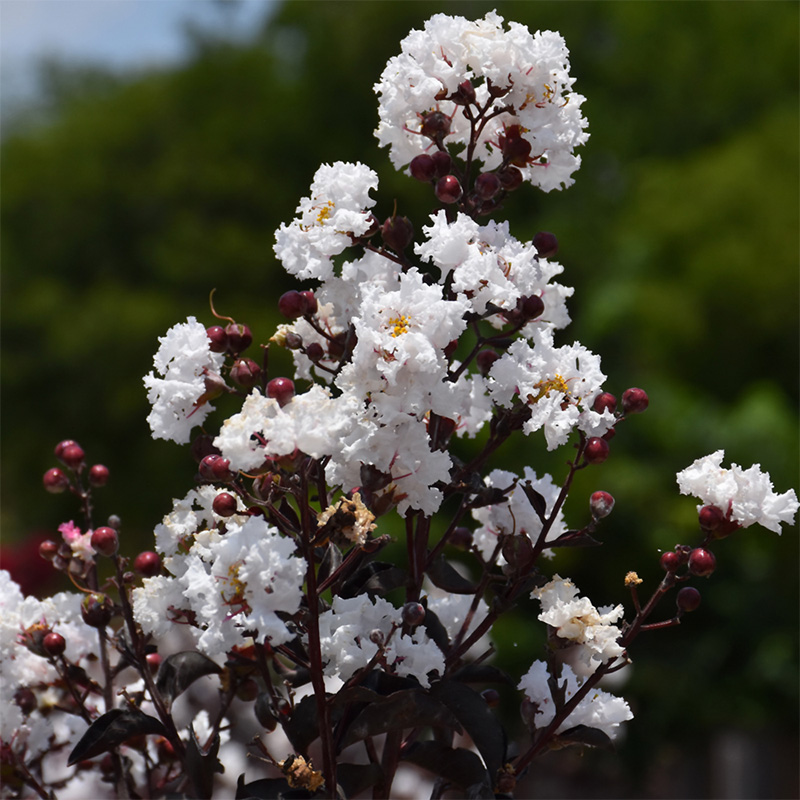You're shopping: DAVIDSONVILLE
(change store)
Crape Myrtles - LAGER 'THNDRSTRK WHT LIGHTNING'

LAGER 'THNDRSTRK WHT LIGHTNING'
no reviews for this product. Login to place a review.
Your Price $299.99
Item Number 244333
In store quantity:
0
$299.99/ EA
Lagerstroemia 'JM4'
Height: 30 feet
Spread: 15 feet
Sunlight: full sun partial shade
Hardiness Zone: 7a
Other Names: Crape Myrtle, Crepe Myrtle
Group/Class: Thunderstruck Series
Brand: Garden Debut
Description:
This spectacular tree is covered in masses of white blooms in summer to fall, over dark green foliage that fades to near-black; a stunning landscape accent tree that reaches mature dimensions very quickly
Ornamental Features:
Thunderstruck White Lightning Crapemyrtle is clothed in stunning panicles of white frilly flowers at the ends of the branches from mid summer to mid fall, which emerge from distinctive crimson flower buds. It has attractive burgundy foliage with hints of black which emerges green in spring. The oval leaves are highly ornamental and turn dark red in fall. The smooth khaki (brownish-green) bark and crimson branches add an interesting dimension to the landscape.
Landscape Attributes:
Thunderstruck White Lightning Crapemyrtle is a dense multi-stemmed deciduous tree with an upright spreading habit of growth. Its relatively fine texture sets it apart from other landscape plants with less refined foliage.
This is a relatively low maintenance tree, and is best pruned in late winter once the threat of extreme cold has passed. It is a good choice for attracting bees and butterflies to your yard. It has no significant negative characteristics.
Thunderstruck White Lightning Crapemyrtle is recommended for the following landscape applications:
- Accent
- Mass Planting
- Hedges/Screening
- General Garden Use
Planting & Growing:
Thunderstruck White Lightning Crapemyrtle will grow to be about 30 feet tall at maturity, with a spread of 15 feet. It has a low canopy with a typical clearance of 4 feet from the ground, and is suitable for planting under power lines. It grows at a fast rate, and under ideal conditions can be expected to live for 50 years or more.
This tree does best in full sun to partial shade. It prefers to grow in average to moist conditions, and shouldn't be allowed to dry out. To help this plant achive its best flowering performance, periodically apply a flower-boosting fertilizer from early spring through into the active growing season. It is very fussy about its soil conditions and must have rich, acidic soils to ensure success, and is subject to chlorosis (yellowing) of the foliage in alkaline soils. It is highly tolerant of urban pollution and will even thrive in inner city environments. This particular variety is an interspecific hybrid.
